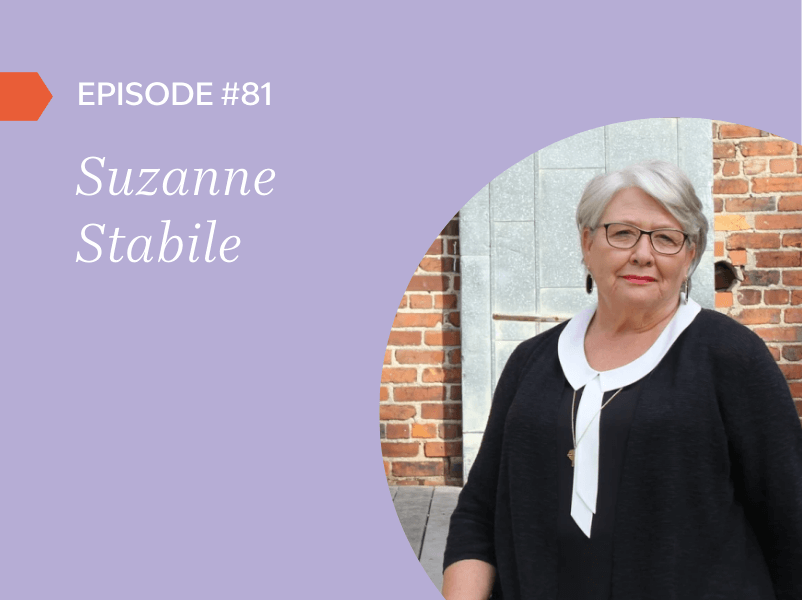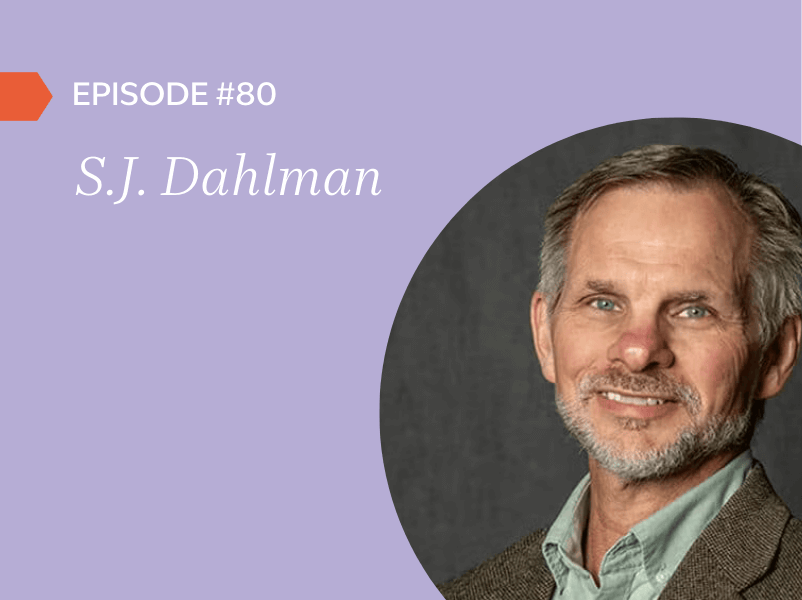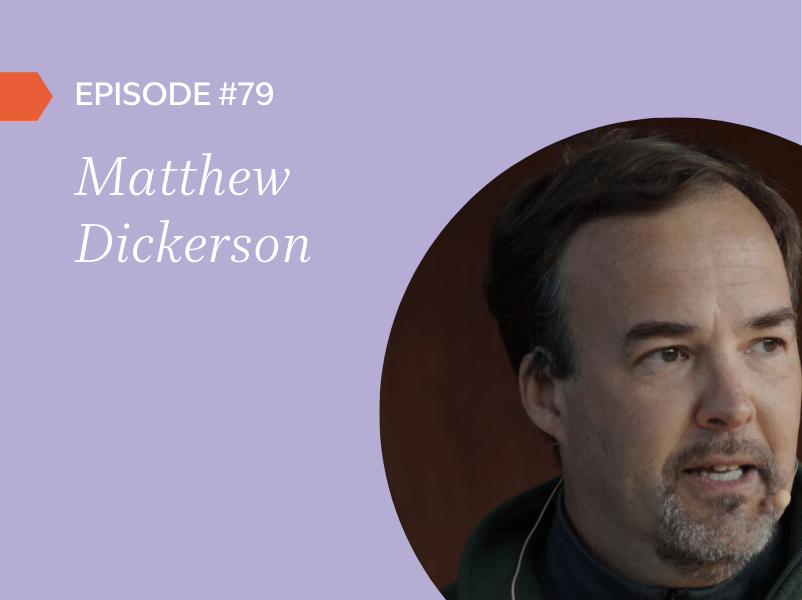Rewrite Radio: a Podcast for Readers, Writers, & Learners
Rewrite Radio is a literary podcast produced alongside the Festival of Faith & Writing. Here, you can listen to conversations we've had with writers and readers as we've celebrated the written word together for over three decades. Each episode features a different Festival session from our archives.
Episode #81: Suzanne Stabile
“Enneagram godmother” Suzanne Stabile joins poet and pastor Sam Gutierrez at the 2024 Festival of Faith & Writing for a wide-ranging conversation on wisdom, creativity, and compassion. Stabile reflects on writing, faith, and the Enneagram as a spiritual tool for deeper self-understanding, healthier relationships, and a kinder world.
Episode #80: S.J. (Jim) Dahlman
In this episode of Rewrite Radio, journalist and author S.J. (Jim) Dahlman reflects on the perceived tension between faith and journalism. Drawing on stories from his reporting and writing, Dahlman explores objectivity, curiosity, and the moral responsibilities of storytelling—inviting listeners to see journalism as a practice that can honor truth, humility, and the sacred in everyday lives.
Episode #79: Matthew Dickerson
What is the source of power in fantasy literature? Listen along as author Matthew Dickerson investigates the magical universes of C.S. Lewis, J.K. Rowling, and J.R.R. Tolkien, discussing how each author portrays magic as power, with inevitably severe implications regarding good and evil. In an uncanny reflection of the state of modern humanity, Dickerson unveils how he finds and holds onto hope in this amusing yet pointed lecture.
Episode #78: Laleh Khadivi
Can AI create art? And is that the question we ought to be asking? On this episode of Rewrite Radio, author and filmmaker Laleh Khadivi urges listeners to remember, in an age of increasing artistic blurriness, the necessity of the individual human being’s creativity. She links the creative process to prayer and asks, if AI is already creating and praying, must the human still too?
Episode #77: Peter Ho Davies
In this episode, Dr. Sabrina Lee sits down with acclaimed novelist Peter Ho Davies for a wide-ranging conversation about craft, identity, and the stories that shape us. Together they explore several of his books, diving into themes of shame, race, joke-telling, and what it means to write from the in-between spaces of a biracial identity. With characteristic insight and generosity, Davies reflects on how revision deepens his work and how he’s learned to inhabit the “hyphen” in his own life and fiction.
Episode #76: Christian Wiman
This week on Rewrite Radio, poet and essayist Christian Wiman explores what it means to stay spiritually alert in a world shadowed by loneliness and lit by sudden joy. Drawing on poems by Wallace Stevens, Anne Carson, and his own collections—including Zero at the Bone—Wiman reflects on beauty as a form of justice, on grief as grace, and on the mysterious ways poetry calls us to pay attention.
Episode #75: Sonya Bilocerkowycz
Situating herself in the contexts of the Russia-Ukraine conflict and Ukrainian diaspora, Sonya Bilocerkowycz presents the roles and responsibilities of the reader, writer and artist in wartime. Bilocerkowycz emphasises the power writers have in influencing memory and narrative through their work in such times, and calls for the writer not only to prepare, learn, and inform, but to also use art to defend and save lives when the moment comes.
Episode #74: Amy Julia Becker & Hilary Yancey
What does it mean to tell stories of disability with honesty, love, and care? Both mothers of disabled children, writers Amy Julia Becker and Hilary Yancey, in conversation with Dr. Kevin Timpe, explore how narratives about disability can shape identity, community, and faith. Together, they reflect on parenting, setting boundaries, storytelling, and the redemptive power of bearing witness to one another’s lives.
Episode #73: Jemar Tisby
What's next in our fight for racial justice? In this episode of 𝘙𝘦𝘸𝘳𝘪𝘵𝘦 𝘙𝘢𝘥𝘪𝘰, interviewed by Craig Mattson, author and scholar Jemar Tisby (@jemartisby) discusses his helpful framework for justice efforts—the lenses of awareness, relationship, and commitment. He tackles how to apply these concepts to our day-to-day life with examples, humor, and most of all authenticity. A devout Christian, Tisby offers a valuable perspective on how the church is involved in these issues.
Episode #72: Karen Swallow Prior
On this episode of Rewrite Radio, author and scholar Karen Swallow Prior reflects on the power of imagination—not just as an individual gift, but as a force that shapes communities, cultures, and faith traditions. With insight, humor, and historical perspective, she invites us to notice the stories and symbols we live by and to consider how reimagining them might open the way toward a different future.
Episode #71: Elan Babchuck
What happens when old models of power no longer serve us? In this episode of Rewrite Radio, Rabbi Elan Babchuck explores “Mosaic leadership,” a vision rooted in humility, resilience, and community. Through stories of Moses, modern innovators, and even his own children, Babchuck invites us to move from pyramids of control to circles of belonging—and to imagine new horizons of leadership in uncertain times.
Episode #70: M.T. Anderson
In Episode 70 of Rewrite Radio, acclaimed author M.T. Anderson explores the sacred and the strange through riveting tales of stolen religious artifacts—from Nepal to Cambodia to the tomb of Saint Nicholas. With wit and insight, he examines the power of objects, cultural identity, and why returning sacred art matters.
Episode #69: Rachel Pieh Jones
In Episode #69 of Rewrite Radio, Rachel Pieh Jones joins us to explore how writing cultivates the humility, curiosity, and delight necessary to create a sense of home when nowhere, or everywhere, feels like home.
Episode #68: Rebecca Sheir
In Episode #68 of Rewrite Radio, Rebecca Sheir shares how folktales entertain, inspire, and unite us in this noisy, high-tech world, and act as a bridge between cultures and communities.
Episode #67: Virginia Stem Owens
In Episode #67 of Rewrite Radio, Virginia Stem Owens muses on the difficulties, disappointments, and goodness of real communities. She encourages her audience to seek genuine “local habitations” over abstract “airy nothings.”
Episode #66: Thomas Lynch
In Rewrite Radio Episode #66, Thomas Lynch discusses faith, poetry, and their transformative powers. He asks us to see others as pilgrims on various roads of belief—all searching after a common table.
Episode #65: Clare Vanderpool
In episode #65 of Rewrite Radio, Newbery Medal winner Clare Vanderpool shares how stories transform us and how to maintain our most honest selves. She also sings a few yodel-ay-hee’s from her book Moon Over Manifest.
Episode #64: Jennifer Trafton
In episode #64 of Rewrite Radio, Jennifer Trafton teaches her listeners and students that play is at the heart of creativity. She draws on her experiences as a child and in the classroom to invite writers to play so that the idea brings something new to the world.
Episode #63: Diane Glancy & Sefi Atta
In episode #63 of Rewrite Radio, Sefi Atta and Diane Glancy offer their own thoughts on writing across the borders of religion, culture, language and more.
Episode #62: Jeff Zentner
In episode #62 of Rewrite Radio, Jeff Zentner tells how he invited his characters to live inside his head for months in order to let them tell their own stories. He encourages listeners to write who fascinates them and that the story threads will follow.

























